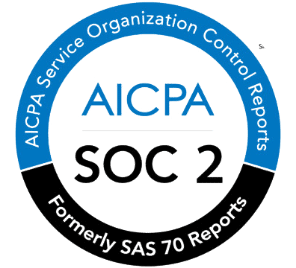In today’s fast-paced, tech-enabled advisory landscape, financial planners face increasing demands to provide holistic, personalized, and proactive service to their clients.
Nowhere is this more evident than in the realm of estate planning.Once limited to outdated or incomplete paper files, estate planning has evolved into a dynamic, ongoing process that calls for precision, collaboration, and adaptability.
- Estate planning software streamlines the estate planning process, making it more efficient and client-friendly.
- It enhances tax planning, multigenerational wealth transfer, and compliance, supporting advisors in delivering smarter, integrated strategies.
- Using this tool differentiates advisors and future-proofs their practice in a tech-forward, client-centric financial landscape.
Financial planners learn early that the more tools they can offer their clients, the greater the value of their services becomes.
Financial planners learn early that the more tools they can offer their clients, the greater the value of their services becomes.When planners incorporate estate planning software into their service model, they’re not just expanding their offerings—they’re elevating the client experience.
Let’s break down some of the biggest benefits that estate planning can bring to your practice and how to do it in a way that is cost-effective, efficient, and easy for your clients to understand.
Built by CFP® Professionals,
for CFP® Professionals
Holistiplan was designed by experienced advisors Roger and Kevin to streamline your financial planning process. Achieve more for your clients in less time
Start Your Free 7-Day TrialWhat is Estate Planning?
Estate planning is the process of organizing and preparing for the transfer of a person’s assets—such as property, investments, personal belongings, and even digital accounts—after they pass away or become incapacitated.
There is a misconception that only the wealthy or those with complex estate plans need to create an estate plan.
In reality, estate planning is relevant to anyone who wants control over how their affairs are handled in the future.
At the core, estate planning solutions go beyond just creating a will. They often include such things as creating estate planning documents like trusts, healthcare directives, powers of attorney, and guardianship designations.
These tools help ensure that a person’s wishes are honored, their loved ones are cared for, and unnecessary legal or financial complications are avoided.
Here’s what a comprehensive estate plan typically covers:Asset Distribution:
This determines how your property and financial assets will be passed on, including to whom, in what proportions, and under what conditions. Whether it’s a family heirloom, retirement account, or real estate, clear instructions help minimize disputes and ensure your wishes are carried out efficiently.

Executor Designation:
Your estate plan should name a trusted individual to serve as the executor or personal representative. This person will oversee your estate after death—managing assets, paying debts, and ensuring the terms of your will or trust are properly executed.

Guardianship Planning:
If you have minor children or dependents, appointing a guardian is essential. This ensures someone you trust is legally authorized to care for them should you pass away or become incapacitated—helping avoid court-appointed decisions that may not align with your values.
Healthcare Directives (Advance Directives):
These include living wills and medical power of attorney documents that outline your wishes for medical care if you’re unable to communicate, including preferences around life support, pain management, and end-of-life decisions.

Financial Power of Attorney:
This authorizes someone to handle your financial matters—like paying bills, managing investments, or handling tax filings—on your behalf if you become mentally or physically unable to do so. Choosing someone trustworthy is key to protecting your financial wellbeing during uncertain times.
Whether it’s protecting family members, reducing estate taxes, supporting charitable causes, or ensuring business continuity, a solid estate plan is an important part of a client’s overall financial information, offering the peace of mind needed to navigate life’s uncertainties with confidence and clarity.
Efficiency Meets Value in Financial Planning
Holistiplan bridges the gap between speed and quality, helping advisors like you deliver greater value to every client
Planning with a Purpose: The Benefits of Estate Planning Software
Estate planning has always been about intention…making decisions today that protect tomorrow.
But in a fast-moving, digital-first world, the way we bring those plans to life is changing.This is where estate planning software can step in. Finding the right digital estate planning platform for your practice will allow you to transform a traditionally paper-heavy, fragmented process into a streamlined, accessible, and proactive experience for everyone involved.
Here’s how the right estate planning software can make all the difference in your estate planning services:
1. It Improves Collaboration Between Advisors and Law Firms
While a financial advisor or planner is not adept at providing legal advice, they are often tasked with estate document storage once key documents have been done.

This collaboration between a financial planner and an estate attorney ensures that a client’s estate plan is both legally sound and financially aligned.
2. It Centralizes Information for Easy Access and Updates
Clients’ lives are constantly evolving, and their estate plans need to be able to as well.
Whether it’s marriage, divorce, births, new business ventures or asset transfers, each life change has implications for an estate plan.
Estate planning software acts as a centralized hub where key documents, asset diagrams, and beneficiary information can be stored and updated, reducing the risk of outdated plans.
Advisors and clients can access, edit, or review important information without digging through paper folders or chasing down email threads. This type of estate planning offering can empower clients to stay proactive, not reactive.
3. It Enhances Client Understanding and Engagement
Estate planning can feel intimidating or overly legalistic for many clients. One of the biggest challenges advisors face is explaining complex topics in a way that resonates emotionally and intellectually.
Advisors looking to simplify complex estate topics may find adaptable software for estate planning useful in delivering visual clarity and control.

This level of transparency helps clients feel more informed and in control—leading to deeper trust and stronger advisor and client relationships.
4. It Supports Multi-Generational Wealth Transfer
With trillions of dollars set to move from Baby Boomers to Gen X, Millennials, and Gen Z over the coming decades, estate planning has taken center stage in family wealth conversations.
However, the values, goals, and communication styles of these generations vary widely.
Good estate planning software allows financial planners to create and update a client’s estate planning strategies in a way that reflects each generation’s unique preferences, priorities, and expectations.
This means that a financial advisor can plan to spend less time on administration tasks and more time on devising financial and estate strategies, all of which will make a significant difference in their workload and their client’s lives.
Holistiplan: The Best Estate Planning Software for Your Firm Today
Financial planning is becoming more personal, more complex, and more digital. Clients don’t just want advisors who can manage investments—they want advisors who can guide their entire legacy.
Holistiplan was designed to do just that.With features like dynamic estate flowcharts, automated tax scenarios, and real-time beneficiary tracking, Holistiplan simplifies the estate planning process, allowing you to focus on what matters most: helping your clients plan with purpose and clarity.
Join the growing community of over 40,000 financial planners who trust Holistiplan to streamline workflows and elevate estate planning outcomes.
Ready to learn more? Reach out today and see what Holistiplan can do for your firm.
If you’re looking to expand your toolkit, exploring the best online estate planning software can help modernize your offerings and better serve digital-first clients.
Elevate Your Practice with Holistiplan
Holistiplan is trusted by thousands of advisors to deliver faster, more valuable financial plans. Start your free 7-day trial and see the difference for yourself
Get Started Today




